- Home
- Debra Dunbar
California Demon Page 2
California Demon Read online
Page 2
“Thanks Bags. Got any tips? I could use another good haul this week—preferably in the next day or two.”
There was a symbiotic relationship between Vultures and pawnbrokers. Bags’s biggest customers were the gangs and the police. When he had a big buy, trouble was coming. And trouble meant an opportunity to pick over the corpses for salvage.
“The Southside Militia is planning to make a move on Gray Dogs, but I don’t know precisely when.”
I pursed my lips. That would be a bloodbath. Militias in New Hell were like privateers. Any group could band together, apply to the state’s Governor for a charter, and be granted license to take out the riffraff. They kept what they found, only having to pay tax on what they sold. And all they needed to do for this license-to-kill-and-steal was to abide by some very loose, vague rules—rules that militias rarely followed.
“It’s gonna be a party,” Bags warned.
“Oh, I’ll bet.” Every licensed Vulture in town as well as casual looters would be there, ready to jump in and pick up the pieces. We’d not only be fighting each other for the best scraps, we’d be fighting whoever was left standing. The militias weren’t known for leaving anything of value behind, and neither were the gangs. The best-case scenario would be if everyone died, or was so badly injured that a quick shot could take them out.
And even that best-case scenario still left me scrapping with several dozen very motivated individuals.
If I were cautious, I’d skip the whole thing. I had money in my pocket. There was no sense in being greedy and getting killed. I’d gotten really lucky and scored today, but this sort of thing didn’t always happen. Most of my takes were small stuff here and there that barely put food on the table. What I had in my pocket and what we’d managed to save so far wasn’t quite enough. Any extra money I could manage to snag up before we ran for the border would help us make a new life.
“Think they’ll hit on accounting day?” I asked.
“That’s what you, me, and everyone else in this city thinks,” Bags replied.
If I was going to start admitting my sins, greed wouldn’t be one of them. Caution had kept my blood on the inside of my body so far this year, and for that I was grateful. I needed to remember that before I did something reckless and put myself and the people I cared about in danger.
But…
I’d go, wait, and watch. If I was sharp, patient, and cautious, opportunity might present itself.
And I sure could use another bit of luck like I’d had today.
Chapter 2
I parked my bike in the driveway beside the sun-bleached red Nissan Sentra and walked up the cracked sidewalk to a small one-story house. I had keys, but I knocked on the door. It was a ritual. It was practice. It was my way of keeping the girls on their toes.
An eerie silence greeted me. The curtain beside the door twitched and I saw the nose of a pistol barrel. Looking up at the peephole, I lifted the grocery bags and smiled.
The knob rattled and the door opened a bit, still restricted by two chains. Dark eyes in a pale face peered out at me.
“It’s me,” I announced. “And my favorite color is bacon.”
I heard a giggle. The door closed, chains rattled, then the door opened again—this time wide enough for me to enter.
“It’s Eden,” Nevarra called out, lowering the pistol and setting it on the table before coming forward to wrap her arms around me.
“Careful. I’ve got eggs,” I told her as I shifted the bags to embrace her one-handed, then reaching out another hand to pull Sadie in for a group hug.
For a solid thirty seconds I did nothing but hold the two girls close. Feelings that had been absolutely unfamiliar ten years ago flooded through me. Living here had changed me, and I still wasn’t all that sure those changes were for the better.
Nevarra pulled away first. “Aunt Bea’s making stew.” She took one of the bags from me.
I was glad Bea was home. After the demons came, her company had closed and left California. She’d managed last year to find work doing the books at a trash collection company. It paid less than half of her former job and often required unpaid overtime, but it was better than nothing.
“Did you bring candy?” Sadie asked into my shirt.
I set the other bag on the floor and extracted a small plastic bag of gummies. “You need to share them, okay?”
Sadie squealed and danced in excitement, snatching the gummies from my hand. Candy was almost as expensive as meat, but I always found something to bring the girls. They’d had enough shit in their life. Every little bit of sweet helped counteract that.
If all went well, their future would be full of sweets.
I picked up the bag and took the other back from Nevarra. “You guys go in your room and divide the gummies. I need to talk to Aunt Bea in private.”
Sadie took off, clutching the bag of candy. Nevarra shot me a worried glance before following her. It was hard to believe that only four years separated them in age. Nevarra seemed so much older, always cautious, always wary of a fist that might come out of nowhere, always expecting bad news. Sadie had suffered the same in her ten years of life, but somehow none of it had left a mark on her. She was perpetually happy, always trusting, instantly forgetting about the blows and focused on what little joy life gave her.
I watched Nevarra leave and wished she was as innocent and free as her foster sister. Maybe once they were out of New Hell, once they were safe in a world where they could go to school again, and walk to the neighborhood park without fear of being accidentally shot or worse, she’d recover some of her childhood.
Aunt Bea was in the kitchen, standing over a huge pot, sliding sliced peppers into the soup.
“I’ve got cabbage if you want to throw some in,” I told her.
She leaned over to plant a kiss on my cheek, before giving the soup a quick stir. Her real name was Barbara, but some foster kids long before me had christened her Aunt Bea after the matriarchal figure in an old television show. I had no idea what the TV Aunt Bea looked like, but mine was tall and soft with a short cap of iron-gray curls and kind, dark brown eyes. Everything about her was generous—her figure, her wide mouth, her sunny nature. Over a decade of mothering the most damaged and difficult kids in the system hadn’t changed her generosity one bit.
“How fresh is that cabbage?” she asked.
“Fresh. It’ll last if you want to wait.”
She pursed her lips and nodded. “We’ll save that cabbage then. Cook it up later this week when the soup runs out.”
I hoped we’d be gone in the next few days, but raw cabbage on the road would serve us as well as fried. Leaning over, I sniffed the soup. It had chicken, carrots, peas, potatoes, tomatoes, and peppers, with a spicy aroma that told me Bea had thrown some hots in the pot.
“Chicken?” I asked her, wondering where she’d gotten the meat.
“I traded Linda some of those apples you brought in for a breast and a few thighs. She’s going to give me a couple of hatchlings in exchange for the soap I’ve been making and a little sewing. Her son’s pants are looking like shorts lately.” Bea chuckled.
I did my part though salvage, and Bea supplemented her paycheck through trade. It paid the bills and allowed us to save a little here and there. The soaps Bea was trading to Linda were homemade; she’d once sold them to a local shop as a side gig and a hobby. Now, her stock of soaps and her mending and sewing skills were valuable—easily swapped for things I found it difficult to buy at the few local markets that remained open.
I held up the grocery bags. “Where do you want me to put these?”
“Ooo, what else is in there?” She set the ladle down and we both unpacked the groceries, lining the food up on the counter. Cabbage. Eggs. Milk. Bread. Six oranges and two limes. Two pounds of cheese. A package of bologna and one of pimento loaf.
“Is the electricity still holding on?” I asked. “I wasn’t sure about the fridge, but I didn’t want to pass up milk and luncheon
meat.” The cheese and eggs would keep unrefrigerated, but we’d still need to use some of these groceries in a few days or risk them spoiling—sooner if the electricity was off.
“Rolling blackouts, but we’ve had enough electricity to keep the fridge cool,” Bea told me. “It’s the water I worry most about.”
I grimaced. Lately the water wasn’t on more than once or twice a week. No water didn’t just mean a risk of dehydration, it meant looming sanitation problems in the Valley. No water to wash dishes, hands, bodies, clothes. And if people were forced to drink whatever they found, disease would spread like butter on hot toast.
Aunt Bea looked at the groceries, then eyed me. “You okay? I don’t want you taking unnecessary chances for us, you hear?”
She knew what food cost these days, and what sort of score I would have needed in order to bring this kind of money in—especially with the exorbitant tax rate. Big hauls brought risk, and Aunt Bea still saw me as a skinny, angry teen who ran straight into trouble like I had a death wish.
“Yeah, I’m fine. And I brought home more than the food.” I pulled out a wad of money and set it on the counter between the oranges and the cheese.
Bea’s hands shook as she picked it up and leafed through it. “Is…is it enough? I’ve got what I saved before the banks closed plus the extra we’ve been putting away each week. If we put it all together…?”
Getting to the Nevada border would mean gas money and bribes—and possibly more if Bea’s old car broke down. But we’d also need cash to get past the border wall, bribe the guards, get new identification, and get ourselves settled somewhere while we looked for jobs. The farther east we could go, the better. The towns close to the states the demons had seized were filled with people desperately trying to carve out a new life. The competition for housing and jobs as well as the crime rate wouldn’t be much better than it was here, and I wanted better for my family—much better.
“Yeah, we’ll have enough,” I lied. It would have to be enough. But to be on the safe side, I needed to do one more job, have one more decent take, then we’d leave. This plus what we’d saved was hopefully enough for transportation and to bribe us across the border—maybe even get us some papers and a place to stay for a week if we were lucky—but extra money would give us clothes, food, and more of a cushion so we could look for jobs while we adjusted.
I tried to have some faith in our future, but I couldn’t. I’d never been much of one for faith, especially after the demons had come. But the one thing I did have faith in was family. Bea. Nevarra. Sadie. If we stuck together, we’d make it. We had to make it. I’d do anything for them. We were so close to freedom. So close. And I wouldn’t allow my fears to ruin this.
Bea planted another kiss on my cheek. “I’ll hide the money. You stir this soup. Make sure it doesn’t boil over, now.”
She hustled out of the kitchen while I did as I was told, putting the groceries away in between soup duty. That made me relax. It felt so familiar to do this. When I’d been placed with Bea, Nevarra and Sadie hadn’t entered the system yet. There’d been a boy here, then. Drew. He’d aged out four years after Aunt Bea had taken me in, and although the woman always had an open-door policy to all her kids, Drew had taken off the day of his eighteenth birthday and never returned.
He hadn’t been the first boy I’d ever loved, but I’d fallen for him hard. We’d been an item off and on pretty much since I’d been placed here. Then he’d left. He’d left not just me, but us. It still hurt. His leaving churned like acid in my stomach even six years after he’d walked out. Thinking of him stirred up all the old fears of abandonment that I’d never really buried.
Bea shuffled back into the room. “When are you thinking of leaving? A week from now? Two? That would give us time to get things sorted with the house and my job.”
A week. I could pull together more money if we stayed for another week or two instead of leaving right away. This was something else I feared. What if we didn’t have enough money? If we got robbed along the way? Or lost? Or couldn’t find jobs in the States and found ourselves homeless and rooting through dumpsters for food? A week or two would give us a bit of a cushion.
But if that cop checked today’s pawn and reported me, the tax collectors would be knocking on my door in a week or two. That cushion would be eaten up by the fine, and I’d likely be dealing with broken bones and bruises as I tried to get my family to the border.
That made the decision for me.
“I’d like for us to leave late tomorrow, maybe between midnight and dawn the next day.”
Bea eyed me over her shoulder. “That’s pretty quick. What trouble did you get yourself into, Eden?”
“Nothing,” I lied. “I just want us out of here as soon as possible. We’ve got enough money. There’s no sense in lingering.”
Bea watched me for a moment, those keen, dark eyes of hers seeing right through me, just as they’d always done. “I don’t like you taking risks, Eden. If we need to stay a few more weeks or months or years, it’s fine. We’ll manage just fine. We won’t manage just fine if you go and get yourself shot or stabbed or hauled into jail.”
I never could lie to Bea and get away with it. “What’s done is done. It’s nothing that would get me shot or stabbed or hauled into jail. Worst case I get fined, and I’d rather us leave now before that fine makes a dent in our savings.”
Bea made a disgruntled sound and turned back to the soup. “Okay, we’ll leave tomorrow night.”
My shoulders relaxed at her words. The sooner we got going, the better. “I’ve got one more job I want to do tomorrow. Be ready, because when I get back, we’re going to be moving fast.”
She nodded. “Just as well. I don’t like having this much money here for long.”
Me either.
“Bags isn’t the kind to double cross, and I was careful that no one followed me.” I pulled a bag from my pants pocket. “I got this as well. Some antibiotics, just in case, and your blood thinner.”
“I’d have been fine without it,” she protested, taking the bag.
“It didn’t cost all that much, and I’d rather you have your medicine.”
Bea had been on the Warfarin since before I’d come here. Drew had told me that without it, she was at a high risk for a stroke. Ever since the demons had come and health insurance had vanished as had regular access to pharmaceutical supplies, I’d made sure Bea had the drug. It wasn’t just my fear that she might die without it; it was the thought that Sadie and Nevarra might see it happen. There were no ambulances beyond the private companies, the hospital had an eight hour wait on a good day, and only the rich had quick access to doctors, so if Bea were to have a stroke, the girls would be able to do nothing but watch their foster mom die.
Then they’d be alone with no one but me to protect them. And I wasn’t fit to be anyone’s guardian.
Bea left the soup to envelop me in a huge hug. I sank into her soft, pillowy body and closed my eyes. When I was younger, I’d thought that Bea’s hug could protect me from everything. I knew better now.
She squeezed tight, then pulled away, wiping her eyes. “We’re gonna be fine, Eden. We’ll head south once we’re across the border and go to Phoenix, or maybe Dallas if we have enough to get that far. No matter what happens, we’ve got each other. We’ll be okay.”
“We’ll be okay,” I agreed, even though that tight dread was wrapping itself around my chest once more.
She patted my shoulder. “Go out back. I’ll send the girls out to play. Dinner should be ready in about an hour.”
The girls weren’t usually allowed outside of the house without an adult. I was gone sometimes overnight with my job, and Bea worked nine-to-five. Schools hadn’t been open for the last two years so Nevarra and Sadie locked the doors and stayed inside, supposedly studying with old textbooks. They were bored out of their skulls, and I doubted those textbooks had been opened in months. Bea had asked a neighbor teenage boy to pop over a few times during the day an
d keep an eye on the girls for her, which annoyed Nevarra to no end. She’d just turned fourteen and was furious that Bea had assigned her a babysitter, especially one that was only a year older than she was.
She had a point. Nevarra was getting confident enough with a gun that she would probably be safe enough to run to the store in an emergency, but it was still dangerous. Gunfire happened at random moments each day, but my worst fear wasn’t that the girls would be a casualty of a shootout. There weren’t all that many kids left in the Valley. Quite a few families had fled or been killed when the demons arrived. Any children who hadn’t been lucky enough to escape with their families were hidden away, lest they be snatched up and sold either to the demons—or pedos.
I left the kitchen, hearing the screen door slap against the threshold as I went outside. What little grass remained in the yard was overgrown in dry, wiry patches. A sun-bleached plastic play house sat under a twisted dead tree. There were a dozen different sized balls against the rickety stockade fence. At the bottom of the porch stairs sat a wagon filled with Legos. I smiled and sat down on the bottom step, picking up the blocks and putting them together into a makeshift house. I’d just started on the roof when I heard the door and light footsteps on the stairs.
“I heard you and Aunt Bea talking.”
Of course she had. Nevarra always snuck around and listened in. It had probably saved her life in the past, and had become a habit she couldn’t break even with the safety of Bea’s care.
“We’re leaving tomorrow, hopefully around midnight,” I told her. “Or early the next morning at the very latest.”
She edged past to stand in front of me so she could see my eyes. I met her gaze, showing her that I was being truthful. Then I reached out and touched her springy black curls, tucking one behind a brown ear.
“We’re going to be okay,” I promised. I’d do anything to get my little family out of here. Anything.
“You’re coming with us, Eden, right?” Nevarra bit her lip.
“Absolutely.” There was a part of me that felt like I didn’t deserve to leave this hellhole, part of me that felt like staying here might be penance for all the shit I’d done in my life.

 Ship of the Dead: The Templar Series
Ship of the Dead: The Templar Series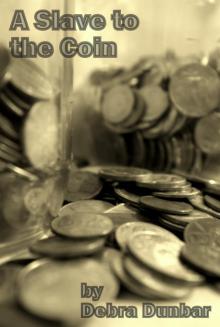 A Slave To The Coin
A Slave To The Coin Royal Blood
Royal Blood A Demon Bound
A Demon Bound Clip Joint
Clip Joint California Demon
California Demon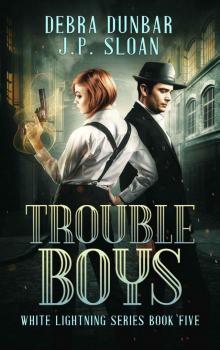 Trouble Boys (White Lightning Book 5)
Trouble Boys (White Lightning Book 5) Royal Blood: Templar Series, Book 5
Royal Blood: Templar Series, Book 5 Down the Chimney
Down the Chimney Juneau to Kenai
Juneau to Kenai Queen of the Damned
Queen of the Damned Stolen Souls
Stolen Souls Cornucopia
Cornucopia A Suburban Summoning
A Suburban Summoning Devil's Paw (Imp Book 4)
Devil's Paw (Imp Book 4) Angel of Chaos
Angel of Chaos Satan's Sword
Satan's Sword Cornucopia (Half-Breed Book 3)
Cornucopia (Half-Breed Book 3) Imp Forsaken
Imp Forsaken Northern Lights
Northern Lights City of Lust (Half-breed Book 5)
City of Lust (Half-breed Book 5) A Suburban Summoning: An Imp Series Story
A Suburban Summoning: An Imp Series Story Vampires of the Caribbean
Vampires of the Caribbean City of Lust
City of Lust No Man's Land: An Imp World Novel
No Man's Land: An Imp World Novel Three Wishes
Three Wishes Juneau to Kenai: An Imp World Novella (Northern Wolves Book 1)
Juneau to Kenai: An Imp World Novella (Northern Wolves Book 1) Wooden Nickels: White Lightning Series, Book 1
Wooden Nickels: White Lightning Series, Book 1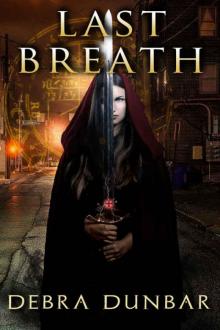 Last Breath
Last Breath Kingdom of Lies (Imp Series Book 7)
Kingdom of Lies (Imp Series Book 7) Unholy Pleasures (Half-breed Series Book 4)
Unholy Pleasures (Half-breed Series Book 4) Ten Lows A-Leaping: An Imp World Story
Ten Lows A-Leaping: An Imp World Story Far From Center
Far From Center Ten Lows A_Leaping
Ten Lows A_Leaping Bare Bones
Bare Bones Kingdom of Lies
Kingdom of Lies The Morning Star
The Morning Star Penance_An Imp World Novel
Penance_An Imp World Novel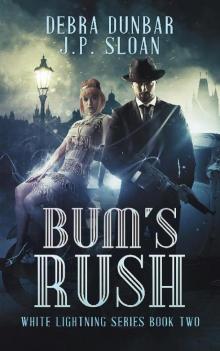 Bum’s Rush: White Lightning Series, Book 2
Bum’s Rush: White Lightning Series, Book 2 Bad Seed: An Imp World Novel (Northern Wolves Book 4)
Bad Seed: An Imp World Novel (Northern Wolves Book 4) Winter Fae
Winter Fae Winter Fae: An Imp World Novel (Northern Wolves Book 3)
Winter Fae: An Imp World Novel (Northern Wolves Book 3) Sins of the Flesh (Half-Breed Series Book 2)
Sins of the Flesh (Half-Breed Series Book 2) Devil's Paw
Devil's Paw Rogue: An Imp World Novella (Northern Wolves Book 2)
Rogue: An Imp World Novella (Northern Wolves Book 2) Satan's Sword (Imp Book 2)
Satan's Sword (Imp Book 2) Exodus (Imp Series Book 8)
Exodus (Imp Series Book 8)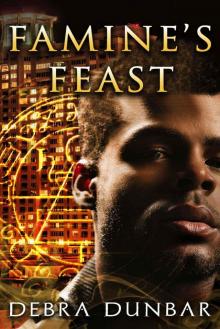 Famine's Feast (The Templar Book 4)
Famine's Feast (The Templar Book 4)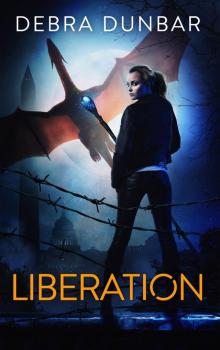 Liberation
Liberation Dead Rising
Dead Rising Far From Center: An Imp World Novel
Far From Center: An Imp World Novel Imp Forsaken (Imp Book 5)
Imp Forsaken (Imp Book 5) Angel of Chaos (Imp Book 6)
Angel of Chaos (Imp Book 6)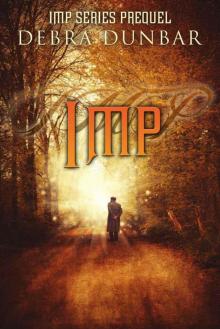 Imp
Imp A Demon Bound (Imp Book 1)
A Demon Bound (Imp Book 1) Queen of the Damned (Imp Series Book 9)
Queen of the Damned (Imp Series Book 9) Demons of Desire
Demons of Desire